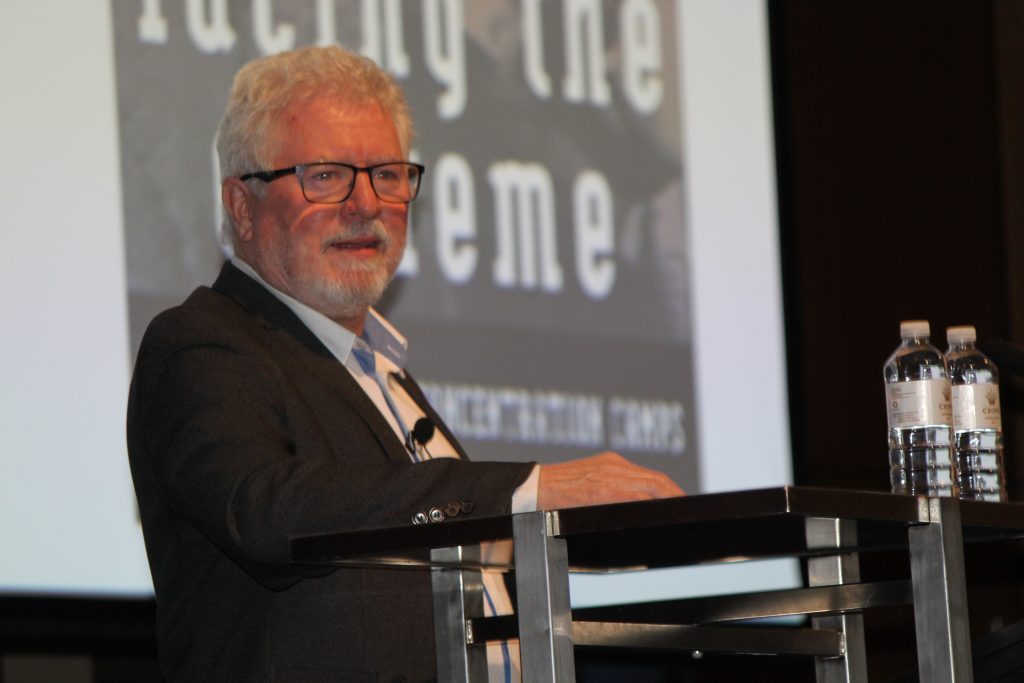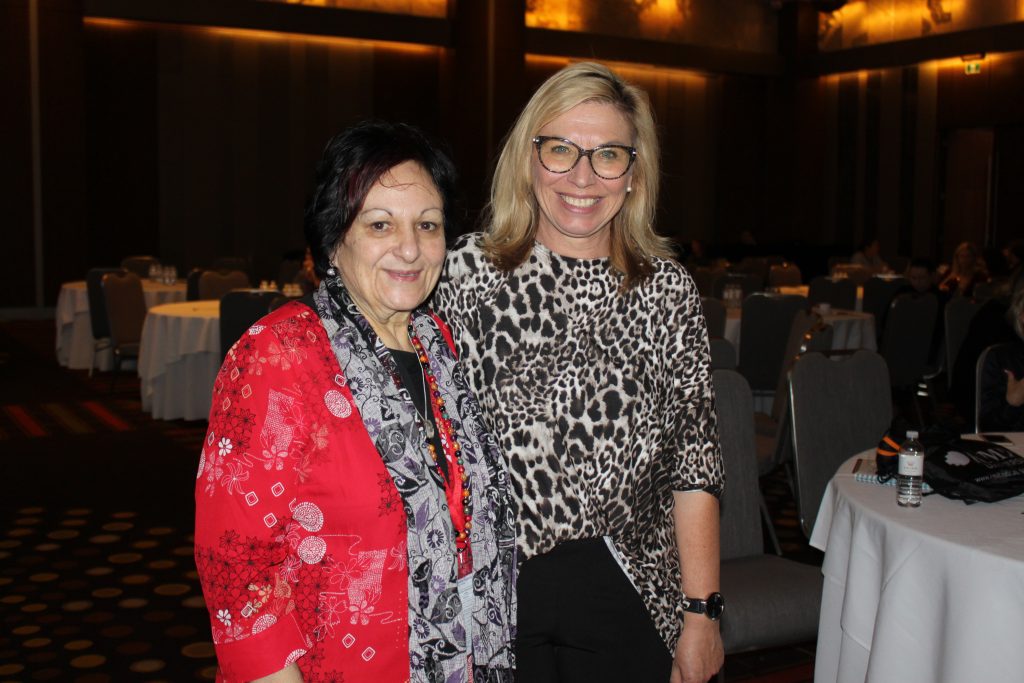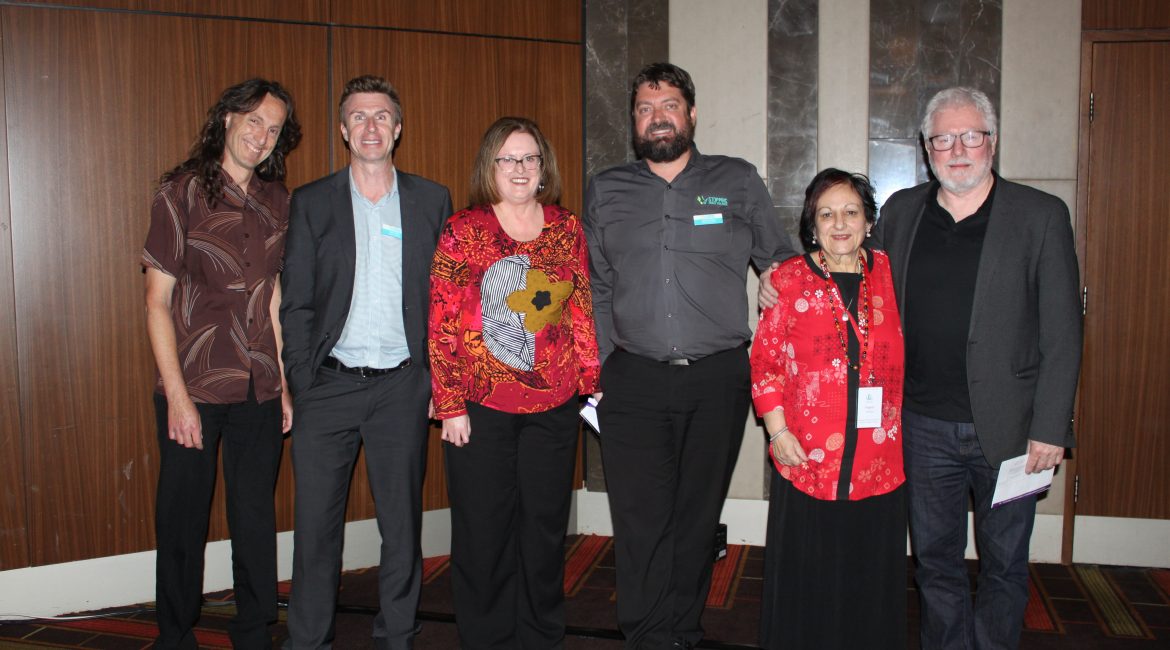“All forms of violence are an affront to a person’s dignity, and for many people they will say the humiliation is the worst part. The bruises go away, but you never forget what was said to you,” said internationally-renowned Dr Allan Wade from the Centre for Response-Based Practice in Canada.
Dr Wade was a keynote speaker at the Intersectionalities in Domestic Violence conference (IDV) throughout October 15-16. He delivered his presentation ‘In Dignity’ and talked about the wider impacts of violence and other forms of social justice in relation to humiliation.

“Violence is the most urgent problem of our times and the most challenging for forensic and human services personnel,” he said.
“Perpetrators know the force of humiliation. So, one of the first guiding principles if we are ever intervening in cases of violence, is [understanding] how we uphold the dignity of this person.”
The IDV Conference was a joint initiative between Stopping Family Violence (SFV) and the Women’s Council for Domestic and Family Violence Services (WCDFVS).
Other keynote speakers included Family and Domestic Violence (FDV) prevention advocate Rosie Batty, NSW Department of Communities and Justice Senior Practitioner Kate Alexander, CEO of Djirra Aboriginal organisation Antoinette Braybrook, Stopping Family Violence’s Mark O’Hare, and an impressive array of speakers representing the sector. Together, they brought together a broad cross section of the community services sector to discuss and consider the strengths and challenges of delivering FDV-informed practice across the spectrum of services who intersect with women, children and men impacted by FDV.
Keynote Speaker, Rosie Batty became an outspoken and dynamic crusader against domestic violence after a horrendous event that shocked not only the nation, but the world. Rosie has made the most of her position of influence, campaigning and advocating for necessary systemic and attitudinal change, to address the family violence epidemic.
Rosie said FDV was an entrenched epidemic that the community have lived with since time began.
“I want to tell people that family violence happens to [anybody], no matter how nice your house is, no matter how intelligent you are.”
Rosie Batty
“We’ve still got a long way to go, but I do believe the tide is turned. It’s no longer a subject that only occurs behind closed doors,” she said.
CEO of the WCDFVS Angela Hartwig said when it came to the issue of FDV and in particular violence against women, collectively as a society, we were looking at a social change over a long period of time and that was what the conference was all about.
“We are having difficult conversations with people and challenging what people may believe and coming up with new and innovative ideas to tackle FDV through the workshops and keynote speakers at the conference,’ she said.

“It is important to understand that rarely victims of FDV have singular issues and the violence also intersects with other areas including, but not limited to, race, disability, sexuality, housing, AOD and mental health services.”
“Domestic Violence cuts across all classes, races, religions and professions, and no woman is exempt from becoming a victim of FDV.”
Angela Hartwig
In Australia we find ourselves in a time of crisis when it comes to Family and Domestic Violence. In 2018, Western Australia alone, had more than double the number of FDV-related deaths than the previous year and nationally 79 women, 25 men and 22 children lost their lives at the hands of an intimate partner or family member (Red Heart, 2019).
For many years the specialist FDV sector has been actively involved in identifying and addressing the challenges of intersectionality when working with both the victims and perpetrators of FDV. However, to transition this work into the wider service system, it is necessary to bring together a range of sectors to participate in a discussion around the intersection of FDV and other areas of specialty.
As a first in Australia this conference brought together practitioners, researchers and policy makers from a wide range of disciplines, including alcohol and drug services, mental health and disability services to name a few, to discuss how FDV intersects with these other disciplines and the delivery of FDV-informed practice within this context.
This situation is unacceptable and if we continue on this trajectory, the fate for our community is intolerable. Solving this problem is complex and we know that it is vital that we take a whole of community approach to addressing this epidemic.
The conference could not have been possible without the generous partnership with our major sponsor, Lotterywest. Through this funding, we were able to support delegates from regional areas and smaller not-for-profit representatives to attend the conference and bring that knowledge back to their communities. We also welcomed the Town of Victoria Park, Rio Tinto, Curtin University and the Department of Communities as event sponsors.
We hope to start conversations about eradicating FDV in the community, putting a spotlight on the offender and working towards that social change, by understanding that FDV is everyone’s responsibility.
Words by Jacqui O’Leary
If you or anyone you know needs help contact:
- Lifeline on 13 11 14
- Women’s Domestic Violence Line on 9223 1188 or 1800 007 339 (country)
- Men’s Domestic Violence Line on 9223 1199 or 1800 000 599
- Crisis Care on 9223 1111
- 1800 Respect on 1800 737 732
- Kids Helpline on 1800 551 800
- MensLine Australia on 1300 789 978
- Suicide Call Back Service on 1300 659 467
- Beyond Blue on 1300 22 46 36
- Headspace on 1800 650 890
